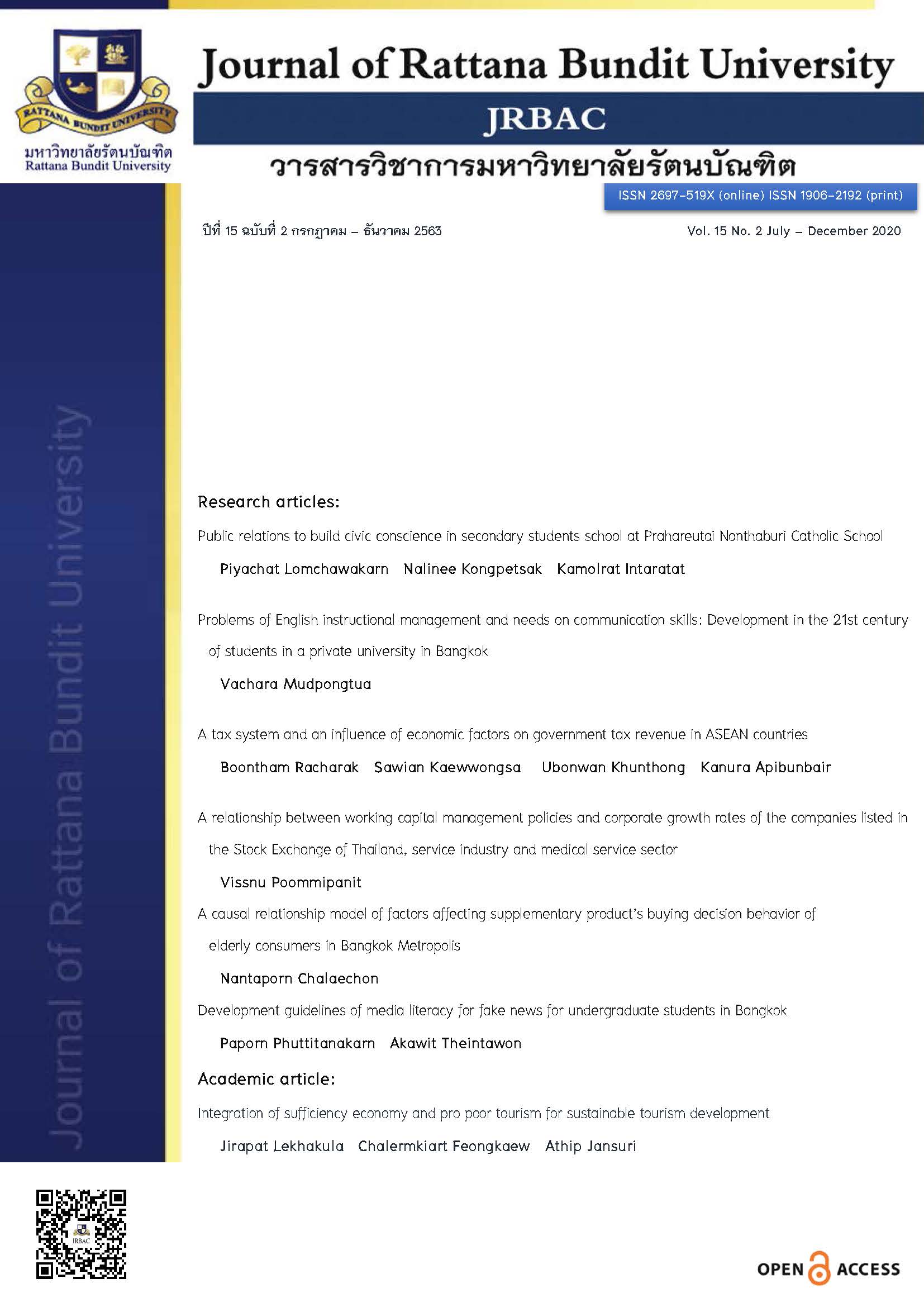Development guidelines of media literacy for fake news for undergraduate students in Bangkok
Main Article Content
Abstract
The objectives of this research were to study the levels of perception of the undergraduate students in Bangkok towards patterns and characteristics of the online fake news, to examine the levels of their perception on how to consider and accept fake news available on the online media, and to propose some developmental guidelines in dealing with false or misleading information presented as news via online channels. The respondents of this study were 454 undergraduates in Bangkok. The derived number was based on the Yamane’s formula. Added to that, there were five specialists on communication arts being asked to deal with the questions. The instruments of this study were a set of questionnaire and in-depth interviews. The data were quantitatively analyzed and qualitatively interpreted for the final outcomes. The results suggested as follows. First, the highest level of the respondents’ perception on how to consider and accept the online fake news was based on their trust in the news sources who were well-recognized people in the society. Second, the students’ online fake news acceptance was mostly found by the fact that they carefully considered reasonable evidence of that particular news. Finally, the proposed guidelines in dealing with the false online news were recommended by (1) creating general knowledge for the students, (2) developing their critical thinking, (3) creating awareness towards the impact of sharing fake news, (4) encouraging students to be well-aware of media, and (5) developing guidelines for them to understand and cope with the online fake news.
Article Details
References
Buranadaechachachai, S. (2017). Not sure, share to society causing chaos. Retrieved from http://imgs.mcot.net/images/2018/05/1525684457247.pdf
Kullajitjaewong, S. (2017). Audiences analysis in digital era. Humanities & Social Sciences, 34(11), 168-187.
Nusom, N. (2018). Theanalysis of fake news and the level of media literacy of users in Bangkok. Retrieved from https://www.tci-thaijo.org/index.php/jcomm/article/download/175345/126043/ (in Thai)
Paireepairith, I. (2017). Fake news, a big problem of the internet world. Retrieved from http://www.okmd.tv/blogs/all-things-digital/fake-news-ข่าวปลอม-ปัญหาใหญ่ของโลกอินเทอร์เน็ต
Thaongsuk, V. (2017). The analysis of clickbait-style news on websites (Master Thesis). Thammasart University, Bangkok. (in Thai)


